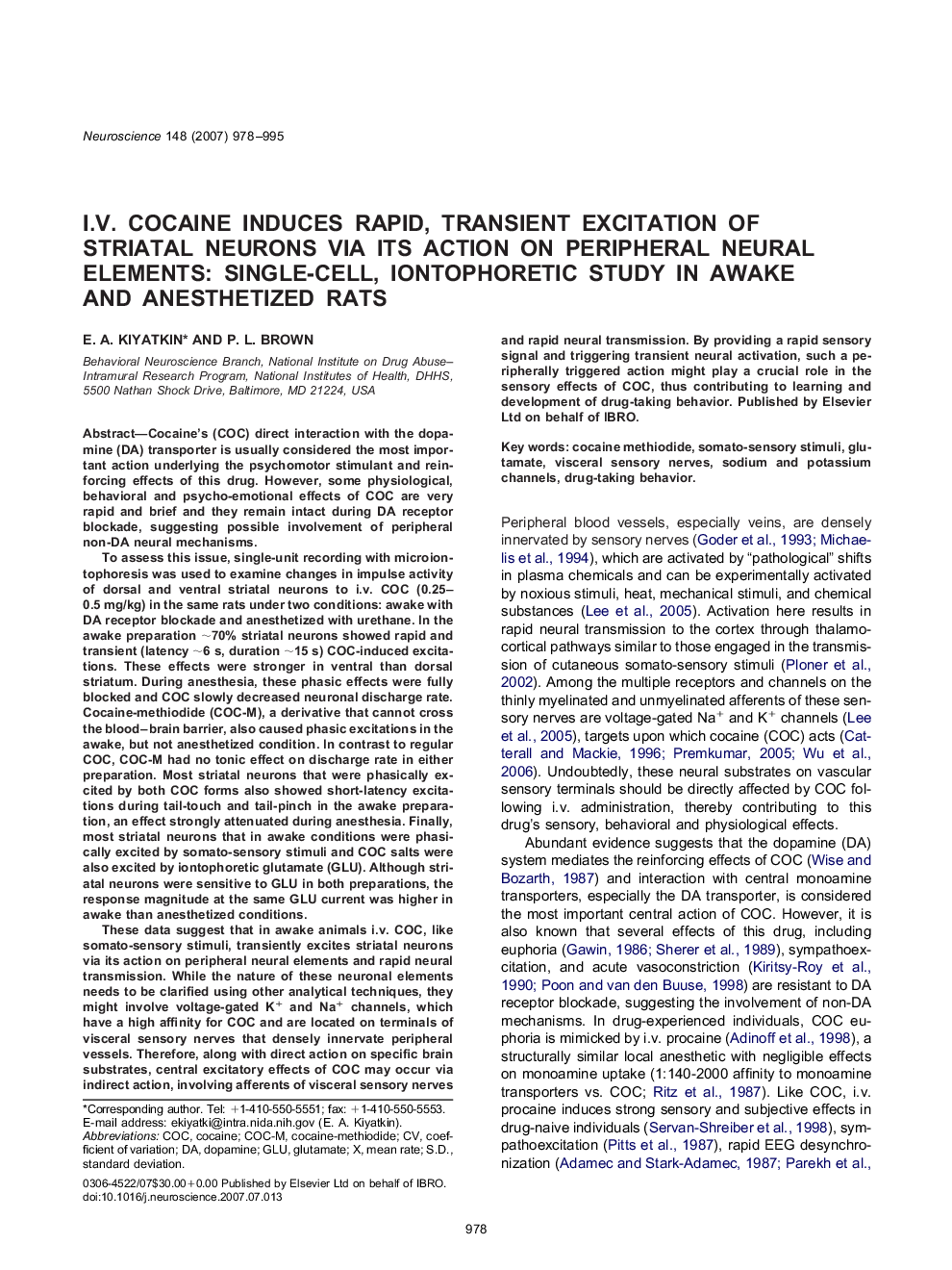| Article ID | Journal | Published Year | Pages | File Type |
|---|---|---|---|---|
| 4340928 | Neuroscience | 2007 | 18 Pages |
Abstract
These data suggest that in awake animals i.v. COC, like somato-sensory stimuli, transiently excites striatal neurons via its action on peripheral neural elements and rapid neural transmission. While the nature of these neuronal elements needs to be clarified using other analytical techniques, they might involve voltage-gated K+ and Na+ channels, which have a high affinity for COC and are located on terminals of visceral sensory nerves that densely innervate peripheral vessels. Therefore, along with direct action on specific brain substrates, central excitatory effects of COC may occur via indirect action, involving afferents of visceral sensory nerves and rapid neural transmission. By providing a rapid sensory signal and triggering transient neural activation, such a peripherally triggered action might play a crucial role in the sensory effects of COC, thus contributing to learning and development of drug-taking behavior.
Keywords
Related Topics
Life Sciences
Neuroscience
Neuroscience (General)
Authors
E.A. Kiyatkin, P.L. Brown,
